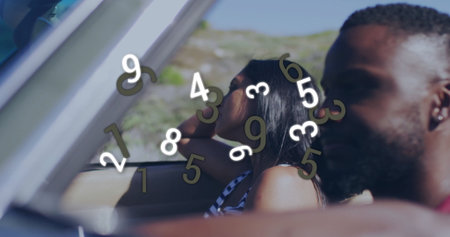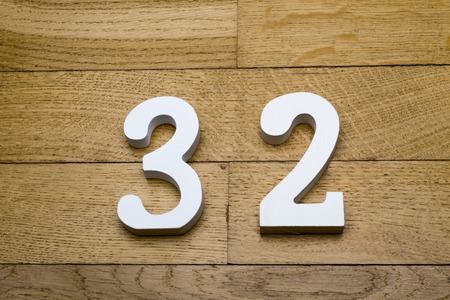Introduction to The Lovers Card
The Lovers card is a significant archetype within the Tarot, often representing relationships, choices, and the concept of union. Traditionally depicted as two figures standing together, sometimes accompanied by an angel or a symbolic backdrop, The Lovers card embodies more than just romantic love. It speaks to the connections that bind people, the decisions that shape destinies, and the harmony—or discord—that emerges from human interaction. In contemporary Britain, where attitudes towards relationships are continually evolving and personal freedom is highly valued, the symbolism of The Lovers card resonates deeply. It prompts reflection on the changing nature of love, the complexities of choice in a diverse society, and the ways in which British culture interprets partnership and commitment. By exploring these themes through the lens of The Lovers card, we can gain unique insights into how modern Britons navigate matters of the heart amidst shifting social landscapes.
2. Love and Relationships in Contemporary Britain
The landscape of love and relationships in the UK has undergone profound changes in recent decades, reflecting broader social, economic, and cultural shifts. The Lovers card, as an archetype of connection, choice, and harmony, finds new resonance in contemporary British society where traditional paradigms are being questioned and redefined. To understand this transformation, it is essential to analyse the evolving attitudes towards dating, partnerships, and marriage across generations.
Shifting Attitudes Towards Dating
Dating in Britain has become more dynamic and diverse due to digital platforms, shifting gender roles, and increasing acceptance of different relationship models. Online dating apps such as Tinder, Bumble, and Hinge have normalised meeting partners outside conventional social circles. This has facilitated greater openness but also introduced a culture of choice overload and fleeting connections.
Key Trends in British Dating Culture
| Trend | Description |
|---|---|
| Online dating prevalence | Over 40% of couples now meet online; digital matchmaking is mainstream. |
| Casual relationships | Increased acceptance of non-committal dating and situationships. |
| Diverse orientations | LGBTQ+ relationships are increasingly visible and accepted. |
Evolving Partnerships
The definition of partnership in Britain has expanded beyond traditional marriage. Cohabitation rates have risen sharply, with many couples choosing to live together without formalising their union. Civil partnerships, originally designed for same-sex couples, are now available to heterosexual couples as well. This reflects a broader shift towards valuing emotional compatibility over legal or religious frameworks.
Marriage: Redefining Commitment
Marriage rates have declined steadily since the late 20th century, while the age at first marriage continues to rise. Many Britons view marriage as one option among several rather than a social necessity. At the same time, there is increased emphasis on individual happiness, mutual respect, and equality within partnerships—values that echo the harmonious ideals symbolised by The Lovers card.
Marriage and Partnership Statistics (UK)
| Indicator | 1990s | 2020s |
|---|---|---|
| Cohabiting couples (%) | ~10% | ~25% |
| Average age at first marriage | Men: 29 Women: 27 |
Men: 34 Women: 32 |
| Civil partnerships registered annually | N/A | Increasing year-on-year (since 2019 for opposite-sex) |
Cultural Context: Choice and Self-Expression
The evolving romantic landscape in Britain mirrors a society that values autonomy and self-expression. Choices around whom to love and how to structure relationships are increasingly personal decisions rather than dictated by tradition or expectation. The Lovers card serves as a fitting metaphor for this era—emphasising not only romantic connection but also the importance of conscious choices rooted in authenticity.

3. The Dynamics of Choice: Navigating Modern Relationships
The Lovers card, at its core, symbolises the pivotal moments of decision-making within personal relationships. In contemporary Britain, this symbolism has gained new layers of meaning as modern relationships are shaped by a unique blend of technological advancement, evolving social structures, and enduring family values.
Technology: A Double-Edged Sword
In the digital era, technology profoundly influences how Britons approach love and partnership. Dating apps and social media platforms provide unprecedented access to potential partners, expanding the scope of choice beyond traditional geographical and social boundaries. However, this abundance of options can also lead to decision fatigue and a paradox of choice, where individuals struggle to commit or feel overwhelmed by possibilities. The Lovers card thus mirrors the complexities of navigating these digital landscapes—where every swipe or message becomes an act of selection, reflecting deeper values and desires.
Social Class and Relationship Expectations
Britain’s class system continues to subtly inform romantic choices, shaping expectations around compatibility, status, and shared values. While contemporary attitudes increasingly embrace fluidity and diversity in relationships, underlying social norms still exert pressure on individuals’ decisions. The Lovers card encapsulates these tensions by highlighting the importance of authenticity and personal alignment over external approval or societal conventions. Choosing a partner becomes not only a private affair but also a negotiation with inherited cultural scripts.
Family Values: Tradition Meets Modernity
Family remains a central reference point in British romantic life. For many, the approval of family members is a significant consideration when making relationship decisions. Yet, younger generations are also redefining what constitutes a successful partnership, often prioritising emotional fulfilment and mutual respect over tradition. Here, The Lovers card reflects the balancing act between honouring familial expectations and asserting individual autonomy—a dynamic that characterises much of modern British life.
Integration: Personal Agency Amidst Complexity
Ultimately, The Lovers card in contemporary Britain serves as a metaphor for personal agency within an increasingly complex relational landscape. Whether influenced by technology’s immediacy, the subtle codes of social class, or the pull of family tradition, individuals must navigate competing priorities to arrive at choices that resonate with their authentic selves. This journey—marked by reflection, discernment, and sometimes contradiction—lies at the heart of what it means to love and choose in today’s Britain.
4. Inclusivity and Diverse Love Stories
The Lovers card, when contextualised within contemporary Britain, extends its symbolism beyond traditional romantic ideals to embrace the country’s broadening landscape of relationships. Modern Britain is marked by a growing recognition and celebration of inclusivity, reflecting seismic social shifts in the representation and acceptance of LGBTQ+ relationships, intercultural unions, and alternative family structures. This evolution is not only visible in policy and media but also in the everyday lives of Britons navigating love and partnership.
LGBTQ+ Relationships: Visibility and Acceptance
Britain has made significant strides in the legal and societal acceptance of LGBTQ+ relationships. From civil partnerships to the legalisation of same-sex marriage in 2014, the narrative around love has become more inclusive. However, challenges remain, particularly concerning social stigma and regional disparities. The Lovers card now symbolises not just romantic connection but also the courage to love authentically amidst evolving norms.
Intercultural Unions: Bridging Traditions
As a multicultural society, Britain is home to an increasing number of intercultural marriages and partnerships. These unions often bridge diverse traditions, faiths, and languages, demanding both flexibility and respect from those involved. Such relationships are reshaping British notions of family and community, enriching the national tapestry while sometimes confronting inherited prejudices or expectations.
Alternative Family Structures
Beyond the nuclear family model, contemporary Britain recognises a range of alternative family structures: blended families, co-parenting arrangements, single-parent households, and chosen families formed through friendship or shared values. These varied models reflect the changing choices available to individuals in their pursuit of love, support, and belonging.
Overview of Relationship Diversity in Modern Britain
| Relationship Type | Legal Status | Social Acceptance (General) | Common Challenges |
|---|---|---|---|
| LGBTQ+ Partnerships | Legal (Marriage/Civil Partnership) | Increasingly Positive | Stigma, Regional Differences |
| Intercultural Marriages | Legal & Recognised | Generally Accepting | Cultural Expectations, Familial Pressure |
| Alternative Families (e.g., Blended/Chosen) | Legal Recognition Varies | Growing Acceptance | Bureaucratic Barriers, Social Stereotypes |
The Lovers card in modern Britain thus encapsulates a dynamic spectrum of relationship experiences. It invites individuals to celebrate diversity in love while acknowledging ongoing efforts towards true equality and inclusion across all forms of partnership.
5. British Values: Love, Loyalty, and Commitment
The Lovers card in the context of contemporary Britain is deeply coloured by the nation’s evolving yet enduring values surrounding love, loyalty, and commitment. To understand its significance, it is essential to systematically assess how traditional British values continue to shape relationship expectations and expressions in modern times.
The Legacy of Tradition
Historically, British culture has prized qualities such as reserve, discretion, and steadfastness in matters of the heart. Even today, these attributes subtly inform how Britons approach romantic relationships. While overt displays of affection may not be as pronounced as in some cultures, loyalty and understated devotion remain hallmarks of committed partnerships across the UK.
Loyalty as a Cornerstone
Loyalty is often regarded as a non-negotiable foundation within British relationships. This value manifests not only in faithfulness but also in the willingness to weather challenges together. The Lovers card reflects this by symbolising choices made with integrity and a long-term perspective—echoing the British ideal that true commitment is proven through actions over time rather than grand declarations.
Evolving Expectations of Love
While traditional forms of courtship and lifelong partnership were once the norm, contemporary Britain has witnessed a diversification in relationship structures and expectations. However, there remains a cultural emphasis on authenticity and mutual respect. The Lovers card’s call for honest connection aligns with this shift: Britons increasingly seek relationships based on shared values and emotional openness, even as the definition of love broadens.
Commitment in Modern Britain
Today’s British couples balance individual fulfilment with collective responsibility. Commitment is interpreted not just as legal or social obligation but as an ongoing choice to nurture trust and growth together. This nuanced understanding is mirrored in The Lovers card’s symbolism—where true partnership arises from conscious decisions rooted in both tradition and modern sensibility.
A Synthesis of Old and New
In summary, traditional British values still exert a significant influence on how love, loyalty, and commitment are perceived and expressed. Yet, there is an evident synthesis at play: contemporary Britons honour the past while adapting to present realities, resulting in relationships that are resilient, genuine, and reflective of both heritage and progress.
6. The Lovers Card in Everyday Life
In the context of contemporary Britain, the symbolism of The Lovers card extends beyond the grand gestures and milestones of relationships, weaving itself into the fabric of daily romantic experiences. For many, life is shaped not only by major decisions but also by countless small choices made in everyday situations—choices about communication, compromise, and emotional honesty. The Lovers card serves as a gentle reminder to approach these moments with intentionality and self-awareness. It encourages individuals to pause and reflect on their values and desires before acting, whether navigating the complexities of dating apps in London or managing expectations within a long-term partnership in Manchester.
Personal Reflection and Authenticity
The Lovers card symbolises authenticity and alignment between one’s inner truth and outward actions. In Britain’s diverse society, where cultural norms around romance continue to evolve, this archetype invites people to examine what love means to them personally rather than merely conforming to societal pressures or traditions. It asks each individual to consider: Are you choosing your partner—and your manner of loving—with genuine intent? Or are you being swayed by external influences? By fostering honest introspection, The Lovers card helps people make decisions that resonate with their true selves.
Guidance for Navigating Relationship Choices
Whether contemplating exclusivity, moving in together, or discussing future plans, The Lovers card offers valuable guidance. Its core message is one of conscious choice: it suggests that love flourishes when both parties engage openly and thoughtfully in decision-making. This can be particularly relevant in the British context, where understated communication styles sometimes mask deeper emotions. Drawing on the wisdom of The Lovers card may prompt more direct conversations about needs and boundaries, ultimately strengthening connection and trust.
Integrating Symbolism Into Daily Practice
Practically speaking, invoking The Lovers card can be as simple as setting aside time for regular relationship check-ins or journaling about one’s feelings regarding a partner or potential match. For singles navigating the British dating scene, it might mean reflecting on compatibility beyond surface-level attraction or societal ideals. For couples, it could involve revisiting shared goals or expressing appreciation during routine activities like making tea together. In these ordinary yet meaningful moments, The Lovers card acts as a compass—guiding individuals to choose love with clarity and intention amidst the unique landscape of modern Britain.


